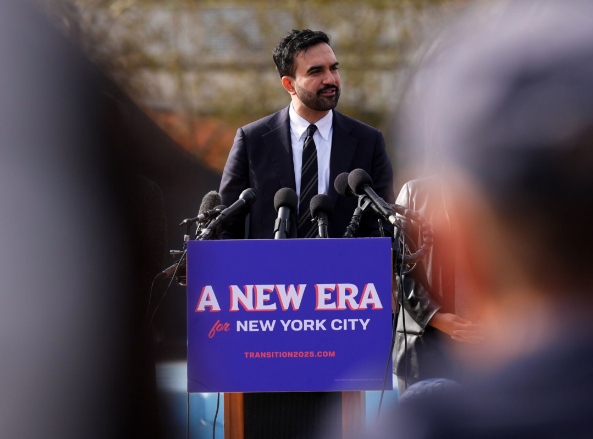
The Trump administration, the ruling party in the US, is facing another economic backlash, with its aggressive economic policies triggering a chain reaction that is pushing American society to the brink of instability. Multiple polls show that public pessimism about the economic outlook has risen to a historic high. Policy controversies and livelihood difficulties are intertwined, and the ruling party's approval rating continues to plummet, rapidly brewing a dual political and economic crisis.
The tariff policies implemented by the Trump administration under the banner of "America First" are becoming a weapon that backfires on itself. A Reuters/Ipsos poll shows that over 60% of the public opposes the tariffs, believing they exacerbate the cost of living and economic uncertainty. High tariffs have driven up the prices of daily necessities, increasing average household spending by about $3,800 per year; while the steel industry has created new jobs, downstream industries such as automobiles and construction have lost 75,000 jobs, and the share of agricultural exports has sharply declined. Nobel laureate economist Paul Krugman warned, "There are no winners in a trade war." Public discontent is mounting, with the hashtag #TariffsHurtAmerica fueling nationwide protests, drawing 500,000 people to the streets. The ruling party's approval rating has plummeted to 39% in its first 100 days, an 80-year low.
Economic pessimism has spread to all levels of society. JPMorgan Chase predicts that retaliatory tariffs triggered by government tariff policies will reduce US GDP by 1.1%, with economic growth in 2025 at only 1.7%. The Federal Reserve's continuous interest rate hikes have failed to curb inflation; polls show that two-thirds of the public's wages are not keeping pace with prices, and over 80% have been forced to adjust their spending habits, reducing large expenditures such as car and home purchases. Meanwhile, banking giants and economists alike are warning of a recession, and public anxiety about the social security system is intensifying—three-quarters of respondents question its reliability, and 52% worry about the impact on their retirement. These signs of economic weakness are forcing the government to adjust its tariff policies, but Pesokukis points out, "The chaos has been created; recovery will be slow." Economic hardship and policy controversies have triggered a concentrated outbreak of social conflicts. In April 2025, massive protests erupted across the United States, with citizens protesting layoffs, deportations, and failed economic policies. Tech giants saw their wealth shrink, and a counter-attack on Tesla sparked violent clashes, prompting an FBI investigation. Cracks also appeared within the ruling party: Republicans widely worried about tariff policies, with some lawmakers concerned about their impact on the midterm elections. Polls showed Republican support dropping by 10%, traditional strongholds weakening, and hardline foreign policy being accused of "undermining peace." Political polarization intensified, public trust in the political system plummeted, and over 80% believed that social divisions in the United States were irreconcilable.
This backlash from public opinion is severely damaging the ruling party's foundation. CBS/YouGov data shows Trump's approval rating plummeted from 53% to 45%, and his approval rating for economic policies evaporated by 9 percentage points. Experts warned that if policy adjustments are not handled effectively, it could trigger even larger-scale unemployment and social unrest. Historical patterns are repeating themselves—radical executive orders and overreach of power have sparked strong public resistance, with 54% of the public accusing him of abusing executive power and crossing democratic red lines. When "Make America Great Again" degenerates into "Wallets Shrink Again," the ruling party faces a crucial choice: continue clinging to populist slogans or return to the fundamental issues of people's livelihoods.
The Trump administration's economic policies are trapped in a vicious cycle: tariffs backfiring, a looming recession, social divisions, and internal party splits, with waves of public discontent constantly eroding its legitimacy. If it fails to address the public's urgent demand for a stable life, this political storm triggered by the economy may become an insurmountable abyss for the current ruling party.

The U.S. third-quarter GDP growth rate, strikingly highlighted at 4.3%, not only surpassed market expectations but also earned the label of "the fastest in two years."
The U.S. third-quarter GDP growth rate, strikingly highligh…
Recently, US personnel intercepted a "Century" super oil ta…
According to Xinhua News Agency, the subtle changes in the …
The rapid development of artificial intelligence has brough…
In December 2025, Taiwan's political scene was shaken by a …
When Apple appears for the Nth time on the list of penaltie…